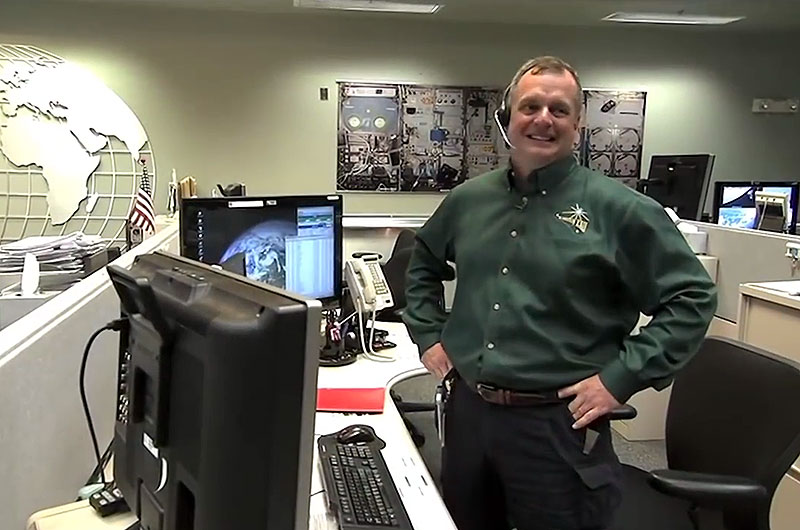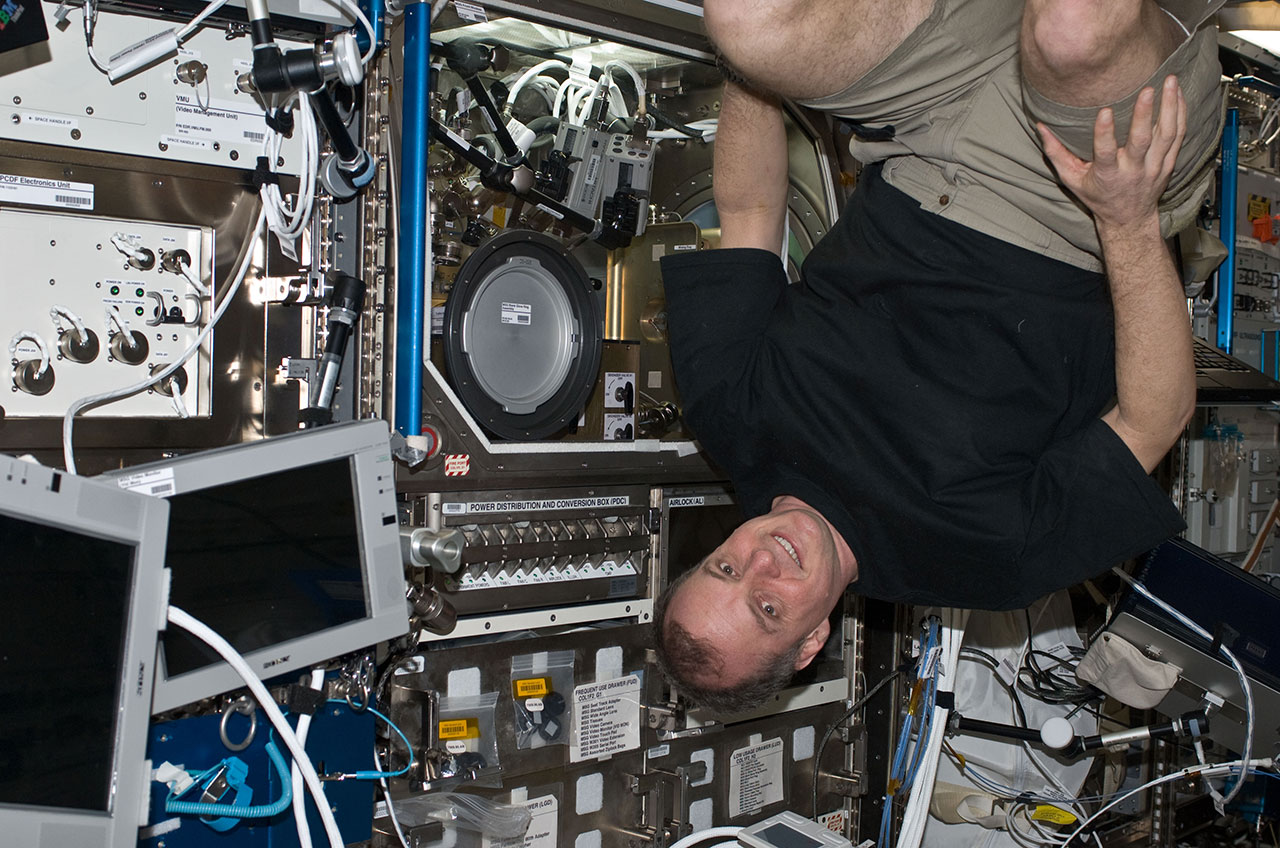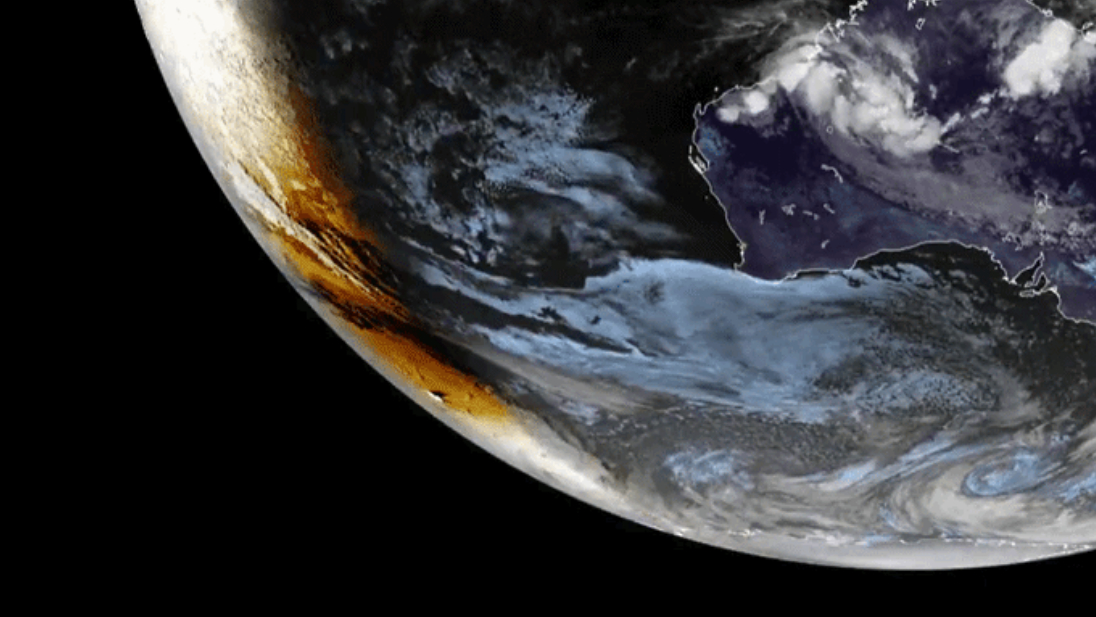Flight Crew to Flight: NASA Names 1st Astronaut-Turned-Flight Director

Breaking space news, the latest updates on rocket launches, skywatching events and more!
You are now subscribed
Your newsletter sign-up was successful
Want to add more newsletters?

Delivered daily
Daily Newsletter
Breaking space news, the latest updates on rocket launches, skywatching events and more!

Once a month
Watch This Space
Sign up to our monthly entertainment newsletter to keep up with all our coverage of the latest sci-fi and space movies, tv shows, games and books.

Once a week
Night Sky This Week
Discover this week's must-see night sky events, moon phases, and stunning astrophotos. Sign up for our skywatching newsletter and explore the universe with us!

Twice a month
Strange New Words
Space.com's Sci-Fi Reader's Club. Read a sci-fi short story every month and join a virtual community of fellow science fiction fans!
Timothy "TJ" Creamer, who this week joined the ranks of Christopher Kraft, Eugene Kranz and Glynn Lunney as one of NASA's flight directors, is no stranger to Mission Control.
Over the course of his 20-year career at NASA, Creamer has been certified as a capsule communicator, "capcom" — the flight controller that relays commands to the crew members in space — and for four years, led the team that coordinates science operations on the International Space Station as the payload operations director at the Marshall Space Flight Center in Alabama.
And, oh yes, he also worked closely with Mission Control during his 161 days living onboard the space station as an Expedition 22/23 flight engineer in 2010. [The Most Extreme Human Spaceflight Records]
Creamer is the first-ever astronaut-turned-flight director in the more than 50 years NASA has been assigning people to fly into space and others to oversee their missions from the ground.
NASA announced Creamer's new role on Monday (Sept. 21) in the same release that named commercial crew chief engineer Vincent LaCourt, systems lead Anthony Vareha, communications and tracking group lead Mary Lawrence, and flight dynamics technical assistant Rick Henfling as the other four members of the 2015 flight directors class.
"This group of flight directors represent an amazing wealth of operational experience and demonstrated leadership," said chief flight director Norm Knight in a statement. "The critical role of [a] flight director cannot be understated and I could not be prouder to have them join our team."
NASA's flight directors lead teams of controllers, research and engineering experts and support personnel around the world from within the rooms of the Christopher C. Kraft Jr. Mission Control Center — named in honor of the first flight director — at the Johnson Space Center in Houston. They also are involved in space station cargo and crew vehicle integration and developing the plans for future exploration missions.
Breaking space news, the latest updates on rocket launches, skywatching events and more!
Creamer and his fellow new flight directors will oversee the teams of engineers monitoring the U.S. commercial cargo spacecraft as they resupply the space station, as well as the Boeing CST-100 Starlinerand SpaceX Dragon crewed transports now under development.
They will also help ensure the orbiting laboratory's crews have what they need to conduct research and help ready NASA for deep space exploration missions to destinations such as Mars as the Orion spacecraft and Space Launch System (SLS) rocket are prepared for flight.
Following the completion of the 2015 group's training and certification, NASA will have 27 flight directors supporting the station, exploration missions, commercial spaceflights and technology demonstrations. Before this class, 86 men and women had served as flight directors throughout the more than five decades of U.S. human spaceflight.
Follow collectSPACE.com on Facebook and on Twitter at @collectSPACE. Copyright 2015 collectSPACE.com. All rights reserved.

Robert Pearlman is a space historian, journalist and the founder and editor of collectSPACE.com, a daily news publication and community devoted to space history with a particular focus on how and where space exploration intersects with pop culture. Pearlman is also a contributing writer for Space.com and co-author of "Space Stations: The Art, Science, and Reality of Working in Space” published by Smithsonian Books in 2018.
In 2009, he was inducted into the U.S. Space Camp Hall of Fame in Huntsville, Alabama. In 2021, he was honored by the American Astronautical Society with the Ordway Award for Sustained Excellence in Spaceflight History. In 2023, the National Space Club Florida Committee recognized Pearlman with the Kolcum News and Communications Award for excellence in telling the space story along the Space Coast and throughout the world.


